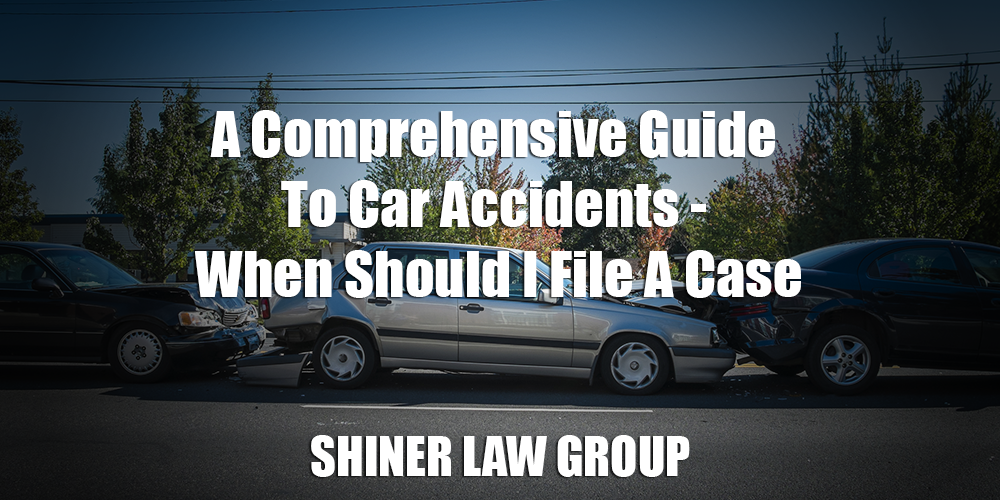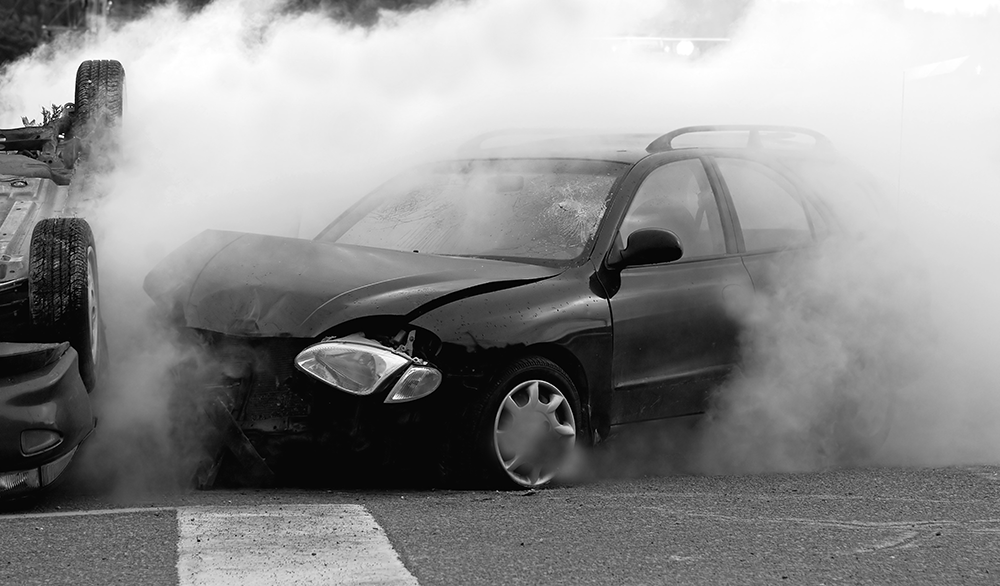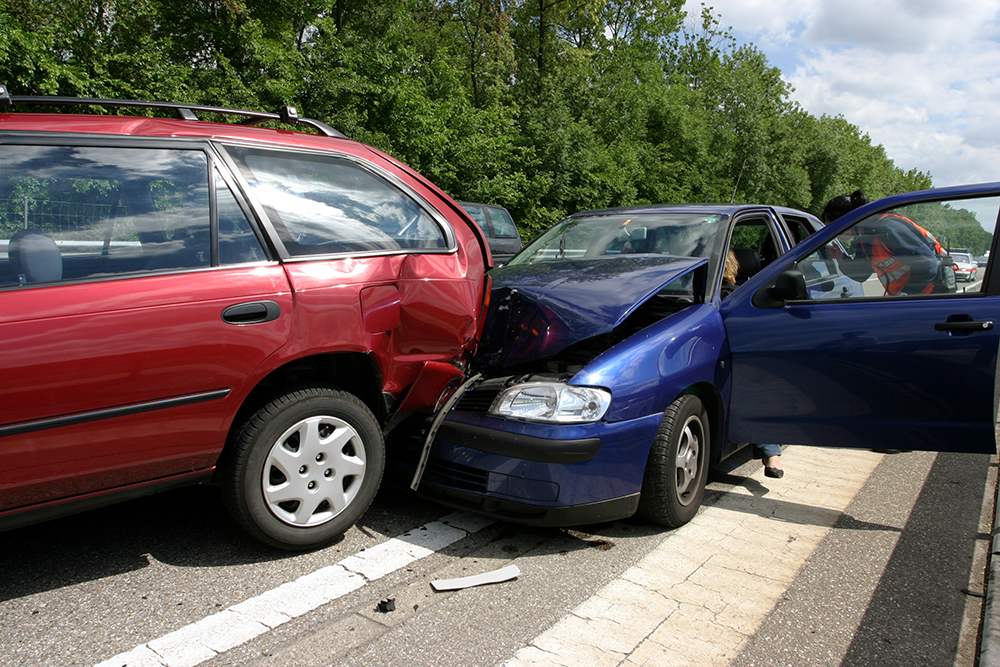No matter the precautions you observe on the road, car accidents can happen. Life works in unpredictable ways and more ways than one. Other drivers do not know how to honor road safety rules. Different circumstances, on the other hand, happen—inevitable accidents. However, road accidents cause harm and injury, with others resulting in fatalities.
In an instant, a car crash can leave you disoriented, shaken, and injured. Your life ends up upturned by the events, either having suffered from physical trauma, mental challenges, or even a mix of both, often topped with emotional repercussions.
You will want to seek justice, especially since you can rightfully claim maximum compensation for your suffering. To help you fully understand what you can do after a car accident, we’ve curated a comprehensive guide you can follow.
We’ll talk about the causes of car accidents, what you can do after an accident, and of course, how you can properly claim your compensation. It’s also important to talk about timelines and Florida’s Statute of Limitations — that said, let’s begin:

What causes car accidents?
A considerable part of filing a case is determining liability. Liability in car accidents anchors heavily on causation, meaning that you need to determine what exactly has caused the accident. The causes of accidents vary, but most cases find that driver behavior contributes significantly to crashes. Here are some of them:
Reason #1: Distracted driving
One of the most common and prominent causes of car accidents is distracted driving. This includes any activity or behavior that causes drivers to lose focus on the road. It takes their attention away from driving and can be dangerous for the drivers, passengers, other drivers, and pedestrians.
Texting and driving is an everyday activity that often leads to disastrous results because it also causes drivers to lose sight of the road and takes their hands off the wheels. The lack of control and attention while driving is often a recipe for disaster. Besides cell phones, other things can also cause distracted driving, such as GPS, applying makeup while driving, or even zoning out.
Reason #2: Driving too slow
It may seem intuitive to drive slowly to avoid any high-speed accidents, but driving too slowly can also cause car accidents. Driving too slowly could cause problems on interstates, highways, and other busy roads because it can disrupt the regular flow of traffic. Slow driving, especially in the fast lane, can cause accidents for other motorists and vehicles.
Reason #3: Driving under the influence of substances
Driving while under the influence of substances such as drugs and alcohol is a hazardous activity. There’s a reason why it’s illegal—these substances alter the attention, coordination, decision-making, and critical thinking skills of drivers. This often leads to the drivers not thinking clearly and losing control while driving, causing road accidents. The accidents may sometimes be severe, life-threatening, or fatal to the drivers, passengers, and other people on the road.
Reason #4: Ignoring road signs and traffic lights
Traffic control devices exist to be followed, and every driver should be aware of this. These critical signals keep the drivers safe on the road. Ignoring or disobeying traffic lights, speed limit signs, or signs prohibiting U-turns can cause multiple problems, mainly because these actions are unpredictable to other drivers. When driving, it’s highly advised to pay attention to the vehicle in front and these traffic control devices and other vehicles.
What should I do after a car accident in Florida?
A car accident will leave you feeling disoriented, terrified, and even injured. Actions after the crash will vary depending on your current status, but if you find yourself alert at the scene, make sure to follow the measures discussed below:
Step 1: Report the accident.
It’s part of Florida law to report an accident as soon as it happens. While bystanders and witnesses will likely be doing the same, do not hesitate to call 911. After doing so, assess the situation. If you can get your vehicle safely off the road, make sure to do so. Wait for the police to arrive and get a copy of the police report, which will be crucial to your claims later on.
Step 2: Seek immediate medical attention.
Even if you find yourself uninjured, it’s best to get checked by the emergency response team. Other injuries can occur internally, or the adrenaline may perhaps be masking any pain you’re currently experiencing. Allow the medical group to transport you into a hospital, as this is where you’ll be required to get diagnostic tests, all of which can help strengthen your case. Make sure also to save all your medical bills.
Step 3: Gather proper documentation.
If you’re still on the scene, or perhaps before being hauled away for medical attention, remember to pull out your phone and document everything. Take as many photos and videos as possible, all of which should adequately showcase the entirety of the accident. Get images of the damages, injuries, and any debris on the highway.
Step 4: Contact a car accident lawyer immediately.
Other parties involved will likely reach out to you for settlements but never speak to them unless you have an attorney by your side. With their help, you’ll know all the right things to say, what to avoid, and even how you can negotiate with insurance companies. There will be various legal matters involved, all of which can steadily become complicated. Things will be even more difficult once you decide to pursue a lawsuit, so never hesitate to call up a lawyer.
How long should I wait before suing or filing a case against the reckless driver?
The period of filing a lawsuit varies from case to case, and more often than not, you will be asked to spend some time waiting. You will have some delay in paperwork, as filing a claim means gathering enough information and evidence. Presenting any less in court could mean a dismissal, so allow your lawyer to work on the necessary papers while you focus on recovering. However, bear in mind that waiting for too long can be detrimental to your case, especially in the state of Florida, where statutes are in place.
Understanding the Florida Statute of Limitations for car accidents
Although the process of filing for a lawsuit may seem straightforward, you need to be aware that specific laws and regulations will be in place. Florida law, in particular, has created the Statute of Limitations, which essentially limits the period in which you can sue after sustaining an injury. Although car accidents are treated separately from other traumatic events, it still falls under a personal injury lawsuit. The state of Florida operates in a strict rule of periods, where you are heavily restricted from filing any personal injury case based on negligence within two years after it has happened.
Bear in mind that the foundation of most personal injury cases states that accidents happen due to negligence. You will need to claim that the party at fault failed to facilitate proper care and attention on the road, which has landed you your injuries. With car accident claims, you will need to prove speeding, drinking while driving, and even distractedness, all of which could prove that the driver has indeed been negligent and should rightfully pay for all the damages you’ve suffered.
Once you’ve gathered enough evidence, you will need to file a claim within two years of obtaining said injuries. According to Florida Statutes section 95.11(3)(a), you must file your lawsuit within two years of the date of your accident. This also holds for property damages, as well as the loss of a vehicle.
Should you fail to file your lawsuit claim within the period given, bear in mind that the court holds all the power to reject it. You will need to do so before the statutory deadline. Even with the most compelling pieces of evidence on hand, you will be rejected. When it comes to filing for damages, you will be at a race against time.
For these reasons, contacting a car accident lawyer in Florida is crucial. They’ll help you understand the limitations better, as well as help you work and act quickly.
How can a lawyer help me win the car accident case?
To make sure that you make the most of your compensation right, you will want to have a car accident attorney on board as soon as possible. They’ll help you investigate matters more thoroughly, giving them ample time to gather enough pieces of evidence as you heal. You’ll also have more time to discuss the aftermath of the crash, allowing you to harvest detailed information before your memory fades. Any photos, proof of injuries, and other damages can also be appropriately documented, all before injuries start to heal and damages are repaired.
Having a lawyer by your side also means you’ll have a professional by your side. They’ll give you sound advice on how to handle a lawsuit, helping you avoid mistakes like posting on social media or discussing your plans in detail. A single mistake can impede your chances of winning the case, especially if contradicting statements begin to rise.
A lawyer can also help prevent you from agreeing to a settlement, as parties involved will pressure you into signing agreements in exchange for large sums of money. However, this reduces the damages you can get as they will likely be low-ball offers meant only to entice and save reputation—never to give you the justice you deserve. With the help of a lawyer, you’re able to stay on track and focus on what matters most—winning your case.
More importantly, a good car accident lawyer will help you build a strong case. Any loops or gaps will be dealt with accordingly, allowing you to face the court with confidence. When dealing with trauma, you will want to obtain the best for yourself—in this case, and compensation will help you live a better life, even after the accident.
What happens after filing a lawsuit?
Should you be lucky to file a lawsuit within the statutory limits, bear in mind that the battle won’t be over yet. There are still many hurdles you need to face, which now includes your duty to show negligence on the part of the other person involved. This is the most vital part of your lawsuit and possibly the only way you can win your case.
Being unable to prove negligence will push the court to dismiss your case, meaning that you will lose the opportunity to receive the compensation you deserve. As the victim or the plaintiff, you will need to gather these four main elements:
- Legal duty: This element pertains to the obligation of every individual to act responsibly and prudently. You shall be able to satisfy this element during a car accident claim but saying that the party involved should have owed you a duty to drive and behave responsibly on the road.
- Breach of duty: The breach of duty requires you to prove that the other party has failed to perform legal obligations, such as failing to behave and act appropriately on the road.
- Causation: This element compels you to establish a link between the action that has transpired and the results of those actions. In other words, you need to prove that their negligence has directly caused you harm.
- Harm: This element can perhaps be the easiest to do, especially since you only need to satisfy that you genuinely have sustained harm and injuries due to negligence. This can come in photographs, videos, medical bills, diagnosis, and even yourself, should you have suffered from life-altering injuries like an amputation.
Seek The Help Of A West Palm Beach Car Accident Lawyer
Suffering from a car accident can be terrifying, especially if they have sustained life-altering injuries. The mere thought of being in an accident can already strike fear, but suffering through the pain of loss, injuries, and other emotional trauma can change your life forever. For these reasons, you need to pursue a personal injury lawsuit as soon as possible.
For the best results, never hesitate to contact a car accident lawyer. Shiner Law Group offers the best in Florida, as we are a law firm composed of licensed attorneys, all passionate about representing the injured and those who have suffered losses. Allow us to help you gain the justice you deserve—book a consultation today.


